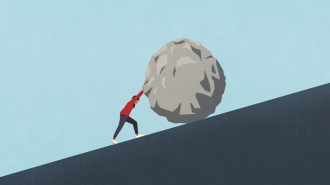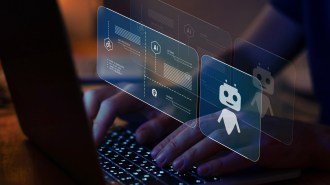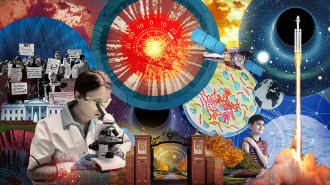
Health & Medicine
New dietary guidelines flip the food pyramid
The new guidelines emphasizes eating protein and full-fat dairy while reducing sugar, carbs and ultraprocessed foods.
Every print subscription comes with full digital access

The new guidelines emphasizes eating protein and full-fat dairy while reducing sugar, carbs and ultraprocessed foods.
We summarize the week's scientific breakthroughs every Thursday.

Western cultural stories tend to emphasize perseverance. But science shows that knowing when to quit has a place in our success too.

There was more good health news about the COVID-19 vaccine for infants, kids and adults in December. There’s still time to get the shot this winter.

An NIH scientist’s maverick approach reveals legal, ethical, moral, scientific and social challenges to developing potentially life-saving vaccines.

Psychiatrist Robert Custer spent his life convincing doctors that compulsive gambling was not an impulse control problem. Today, his research is foundational for diagnosis and treatment.

Chatbots that dole out fact-laden arguments can sway voters. Those facts don’t have to be true.

Like exercise, gratitude takes many forms. Finding the right practice, research shows, is up to the individual.

These five early- and mid-career researchers are shaking up what we know about the Arctic, black holes and beyond.

Expectations of continued success for American science were shaken this year when the Trump administration cut billions of dollars in funding and fired thousands of scientists.

Books about AI, Mars and infectious disease were among our top reads this year.
Subscribers, enter your e-mail address for full access to the Science News archives and digital editions.
Not a subscriber?
Become one now.